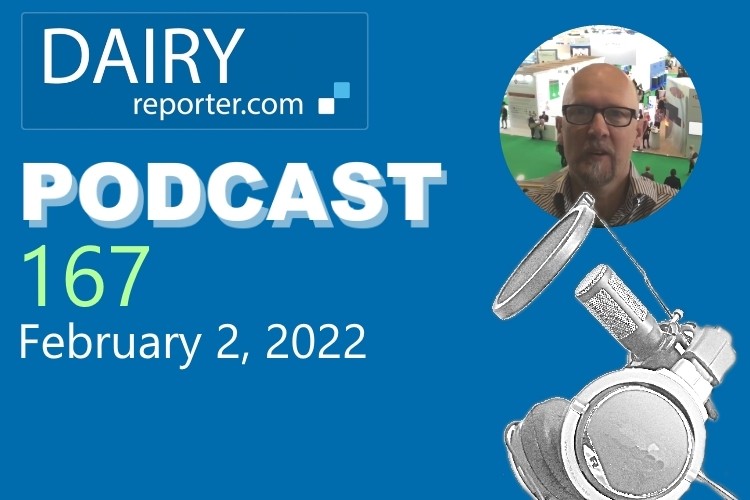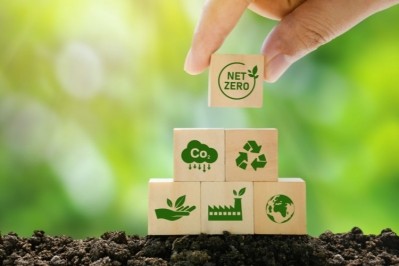Dairy Dialog podcast 167: Kezzler, Lubey, Lyras

And we have our weekly look at the global dairy markets with Charlie Hyland at StoneX.
Beston to use Danish UV technology for lactoferrin production
The Danish company Lyras A/S has given Australian food and beverage company Beston Global Food Company the exclusive rights to use Lyras’ sustainable technology for production of lactoferrin and similar products in Australia and New Zealand, for a limited period.
Lyras’ technology inactivates bacteria and spores in liquid food by using a technique called raslysation, which is based on UV-light. Lyras said the technology reduces energy usage by up to 90% and water usage by up to 60% compared to traditional pasteurization. It conserves the natural nutrition, structure, and taste of the food due to the treatment.
The new technology applies UV-light combined with a light filter, which concentrates a specific wavelength. The liquid is then led through coils in a controlled flow ensuring the entire volume is exposed to the light. The technique can also be applied to juice, wine, beer and many other liquids.
Lyras’ technology for inactivating bacteria and spores using UV-light was initially called cold pasteurization. But the company said as cold and pasteurization are contradictory, the technology was renamed raslysation: the first three letters in the name Rasmus Mortensen, the inventor of the technology, combined with the word lys, the Danish word for light.
“The ability to manufacture lactoferrin without a form of heat denaturation will be unique within the marketplace. By not subjecting the lactoferrin to a HTST process will provide Beston with a lactoferrin product that is in its most natural state, thereby improving the bioavailability and purity of the final product which would make an ideal ingredient for health supplements and pharmaceutical applications,” said Tina Li, CCO, Beston Global Food Company.
The market for lactoferrin has grown in recent years due to scientific research indicating health benefits related to the protein. Studies have shown lactoferrin complements the human immune system with anti-microbic, antioxidant and anti-carcinogenic properties. This has led to an increase in the use of lactoferrin in infant formula dietary supplements, foods and cosmetics.
“Lactoferrin is very heat sensitive losing approximately a third of its activity when heated. For this reason, it is a huge advantage to use our technology, raslysation, instead of traditional pasteurization. We have other companies showing a lot of interest in this product all around the world as well as in Asia and Oceania,” said Leif Brandt Iversen, senior sales manager at Lyras.
“Beston will continue to work with world leading technology suppliers to develop and market the next generation of lactoferrin products which will be a significant step forward on the current products within the marketplace,” Darren Flew, CEO of Beston Global Food Company said.
Lactoferrin is a natural iron-binding protein. It is found naturally in cow milk and in human breastmilk, especially in the first raw milk. The main purpose of lactoferrin is to bind and transport iron in the body. But the protein also has a role in fighting bacteria and virus infections.
The lactoferrin-protein can be extracted from regular cow milk, but one liter only provides such a small amount. Lyras said the cost is around €1,000 per kilogram.
Lactoferrin has a delicate pink color and was discovered in 1939. Two thirds of all lactoferrin produced is used in infant formula, and the rest is used for dietary supplements for athletes.
Kezzler
Kezzler is a product digitization and traceability tech company.
Its traceability technology uses specialized codes on individual products to secure their validity. The company utilizes patented serialization technology to curb track and traceability problems, allowing businesses to track their entire supply chain at any point while ensuring the products we consume (such as food and pharmaceuticals) is safe prior to use or consumption.
From source to consumer, data is associated with the product through the code.
Lubey Trading platform for waste and recycling raw materials expands into Europe
Lubey Trade, the German-based digital trading platform for waste and recycling raw materials, is expanding its coverage.
The company said after a strong rise in user numbers in Germany, it is now available in English for companies throughout Europe. This creates a Europe-wide online marketplace where waste generators and recycling companies can do business with each other.
“In the face of exploding raw materials prices, the purchase of secondary raw materials and the efficient marketing of waste are becoming increasingly important for trade and industry,” said Dr Michael Lämmerhirt, chairman of the board of Lubey AG.
“Successful marketing via Lubey Trade in Germany shows that companies are beginning to recognize this. The expansion of the platform to the whole of Europe is therefore the next logical step.”
All types of production and corporate waste plus secondary raw materials can be digitally traded on “Lubey Trade.” This includes all typical waste from trade and commerce, such as metal waste, aluminum scrap, plastics or faulty batches, packaging materials such as lightweight packaging materials (LPM), paper, paperboard and cardboard (PPC), etc.
Marketing follows the principles of an online auction in just four steps: In the first step, users can define the type of e-tendering (private or under public law) and the term for which it will run. In the second step, the materials to be marketed are precisely categorised and described: Firstly, they are systematically recorded by material class.
Waste is also provided with a waste code and secondary raw materials, if applicable, with a product data sheet. Supplementary details and properties, such as material group, shape (balls, bars, granulate, grain size, piece size), material number, purity, etc., plus photographs, are added to make the information more precise. The collection and delivery conditions are also defined here.
Suppliers can select a minimum price and couple the price to a standard industry index.
In the third step, users can define specific requirements for bidders. This means that it is possible to specify, for example, that only certified specialist disposal companies are allowed to bid for the batch.
To hedge the economic risk, waste-generating companies can require their bidders to provide, for example, a bank guarantee, certain insurance policies or minimum turnovers. Requirements in terms of technology and the workforce, such as particular quality standards or qualifications, can also be laid down here.
“Everyone who trades on Lubey Trade must provide information on these points and upload valid proof if necessary,” Lämmerhirt added.
“This ensures maximum security and transparency, along with compliance with environmental and social welfare standards.”
In the fourth step, the system summarizes the e-tender clearly and produces legally compliant tender documents. After a plausibility verification, the e-tender can be published. An e-tender can thus be created in a few minutes.
After the initial bidding phase, a compliance verification of the bidders is carried out, when the requirement criteria are checked. After this, an e-auction is carried out with the approved bidders, after which the contract is awarded. For public authority providers, the valid law on public contracts (EU, Federal, State) is also integrated.
The transparency and simple processing offered by Lubey Trade benefits everyone involved in the recycling chain: Waste generators can market their waste and secondary raw materials quickly and easily and make money. Recycling and recovery companies are provided with access to a large supply of recyclable materials that is no longer just regional.
“The supply chains and raw material markets have long been international, and so it is logical for the procurement and trading of secondary raw materials to follow suit,” Lämmerhirt said.
“Waste that can be recycled and fed back into the economic cycle is of real value to companies – and even more so if there is a market for it that is as large as possible.”
In Germany, many companies in trade and industry already use Lubey Trade, including motor supply companies and retail groups. These are joined by many regional and supra-regional disposal and recycling companies plus public waste disposal companies.









